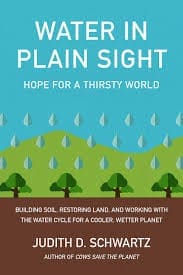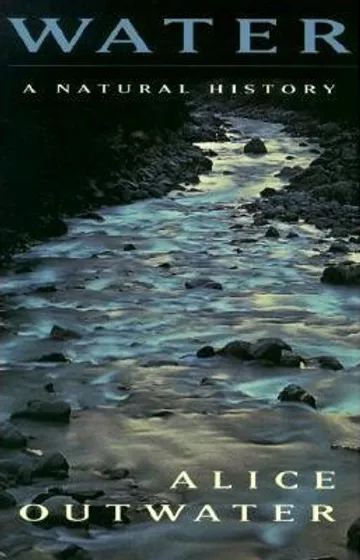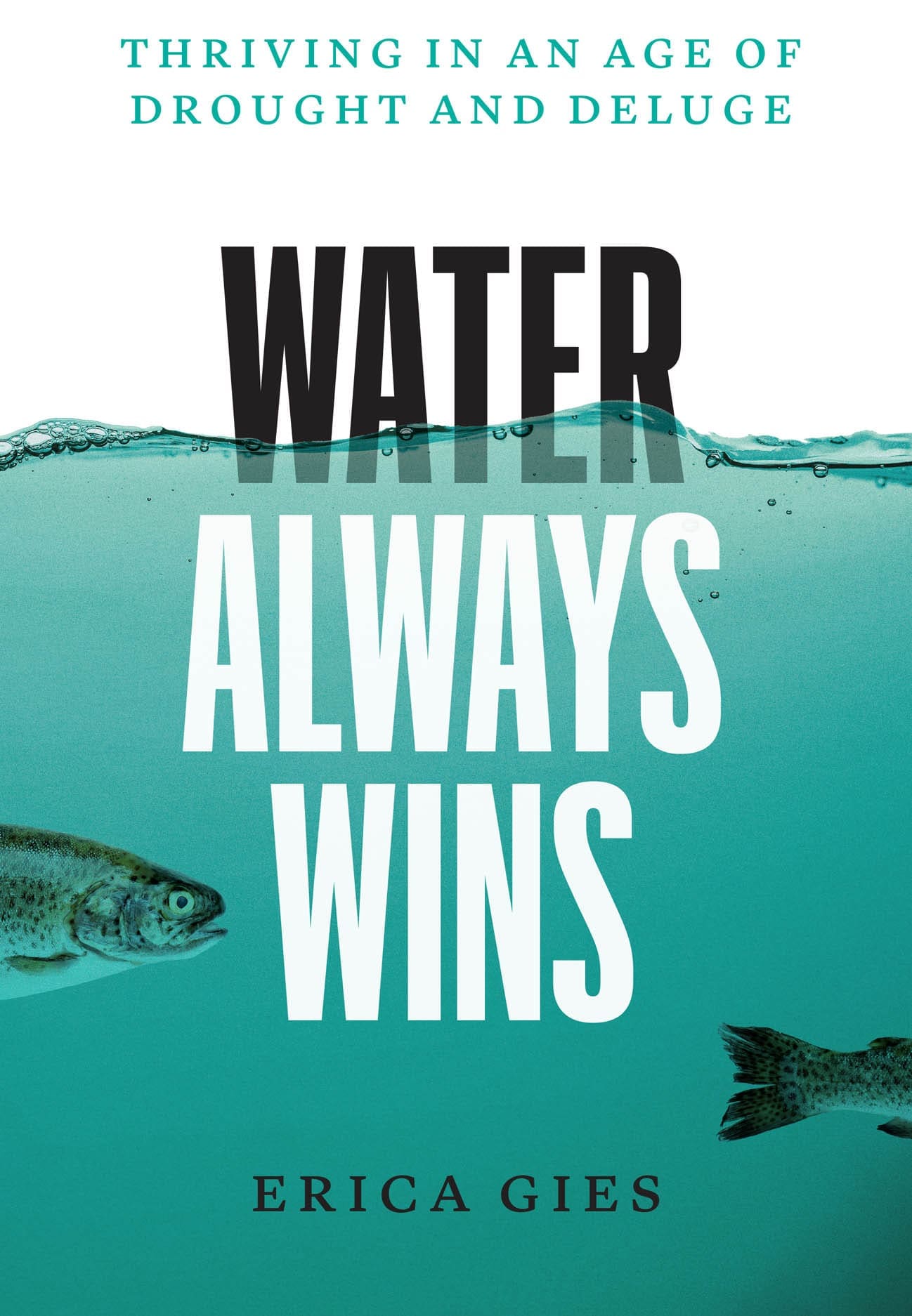How can we find cool insights as we dive into a summer of heatwaves and weather extremes? It hasn’t always been this way. Many of us remember carefree summers with morning dew on the grass or a breeze by the beach or river. Everyone knows it’s cooler by the water! Nations and communities have favorite songs, music, and art expressing awe at water’s life-giving impact. Young folks, too—just look at their Instagram or TikTok posts, filled with selfies near the waterside.
At Biodiversity for a Livable Climate, we delve into the vital theme of water and its impact on our lives. Join us! Choose one or more of these five must-read books for July, all focused on the theme of water.
Nothing has a more significant impact on modern life than water or its lack. How do urbanites find water in the concrete jungle? When we look around for a stream running through our neighborhoods, we may come up dry. How do you follow water if you’re not near the beach?

With Judy D. Schwartz’s landmark book, Water in Plain Sight, you’ll embark on a journey of hope for our thirsty world. Schwartz will take you on a global tour in search of water, offering a unique opportunity to learn from her experiences. Animated by stories from around the globe, *Water in Plain Sight* is an inspiring reminder that fixing the future of our drying planet involves understanding what makes natural systems thrive. As Pacific Standard review said: “Inspiring…We are accustomed to thinking of water as nourishing life, but Schwartz is focused upon the converse phenomenon: the ways in which life promotes water.”
The book Water for Recovery of Climate – The New Water Paradigm by Slovak and Czech authors Michal Kravčík, Jan Pokorný, and their team explains a new approach to conventional water management. This new water paradigm, drawing on the ancient wisdom of farmers, indigenous people, and original settlers, puts your water mapping into a new perspective. They explain that water makes up much of our bodies and landscapes, and share about the small water cycles and how plants move water with the help of the Sun. This novel approach will open your eyes in this hot world: most global water-related crises, such as water scarcity, drought, desertification, flooding, rising sea levels, and climate change, are symptoms of long-term mismanagement of rainwater and vegetation. Responding to these problems with industrial methods of control and mitigation gets us nowhere. But understanding how water works illuminates solutions.
Then, there is Leila Philips, who takes you to Beaverland. Meeting with scientists, fur trappers, and beaver lovers, she leads you on a journey you did not expect this summer. You may laugh out loud: “For millennia beavers had been at work like modern suburbanites, constantly watering their lawns to make them spring up green.”
In “Beaverland,” Leila Philip delves into the world of beavers, revealing their critical role in shaping North American landscapes. Through vivid narratives and rich historical context, Philip explores how these industrious animals create wetlands, support biodiversity, and influence water systems. The book also addresses themes of environmental conservation, human-wildlife interactions, and the beaver’s symbolic significance in culture. “Beaverland” is a captivating and insightful look at the ecological and cultural importance of this often-overlooked species.
If you want to know more about Water: A Natural History, reach for the book of the same title by Alice Outwater.
In “Water: A Natural History,” acclaimed author Alice Outwater takes readers on a fascinating journey through the past and present of America’s waterways. Blending science, history, and environmental advocacy, Outwater reveals how water has shaped the landscape and culture of the United States. From the mighty rivers that carved out canyons to the intricate wetlands that sustain diverse ecosystems, she explores the interconnectedness of all water systems. The book delves into the impacts of industrialization, agriculture, and urbanization on our water resources, offering a compelling narrative on the need for sustainable practices. With vivid storytelling and insightful analysis, “Water: A Natural History” is a must-read for anyone interested in the vital role water plays in our environment and society.
And, finally, if you want to travel across the globe to explore regenerative water solutions, pick up Water Always Wins by Erica Gies.
“Water Always Wins” by Erica Gies presents an illuminating look at humanity’s relationship with water, focusing on the concept of “slow water” and the ways we can work with natural systems rather than against them. Through engaging stories from around the globe, Gies explores innovative approaches to managing water in a time of climate change, such as restoring wetlands, rethinking urban infrastructure, and reviving ancient water practices. The book highlights the resilience and adaptability of water, showing how these strategies not only support ecosystems but also enhance human resilience. “Water Always Wins” is a thought-provoking and hopeful examination of how we can be caretakers of this vital resource.





